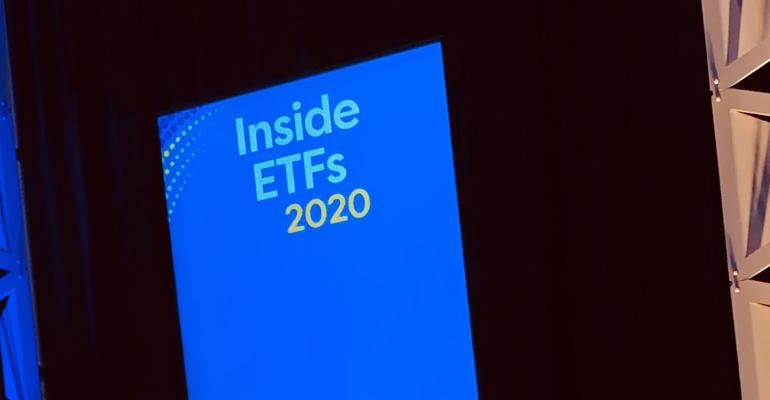U.S. stock investors are overly optimistic and overly confident, two sure signs of a financial bubble in equities, says James Montier, who’s part of the asset allocation team at money manager GMO.
“Investors are overestimating returns and underestimating risk,” he said Tuesday at the Inside ETFs conference in Hollywood, Fla.
That risk is high for the 11-year bull market, Montier maintains. “We haven’t been fans of the U.S. equity mark for a while,” he said. “Not owning it has been extremely painful to go through, but from an investment standpoint, that is exactly what you should be doing going forward.”
Current fundamentals in the U.S. aren’t impressive, Montier said. Real GDP has grown only 1.6% annually since 2007. And real earnings growth has been even worse—1.3%. Productivity growth is slow, and real wages have barely budged. So where is the lift?
More broadly, the lopsided gains in the bull market are fueling some measure of social turmoil. Income inequality has raged since the Reagan administration, Montier noted. “Income gains are being captured by a small number of people. That’s a big problem for any society.”
So why are stocks rising? Hopes and expectations, and fear of missing out, Montier argues. “Typical late-cycle behavior.” Instead of selling high, investors are buying high.
Stock buybacks and extended valuations are the main contributors to the outperformance of U.S. stocks compared with those overseas, he believes, not earnings growth. But Montier is skeptical those two factors can continue working their magic. “U.S. price-earnings ratios are much higher than overseas. Further expansion of multiples is unlikely,” he said.
An asset bubble comes from suspension of disbelief, and that’s where the U.S. stock market stands now, Montier said.
To get normal real stock returns of 5.7% over the next seven years, the P/E ratio must rise to 32 times from its current 25 ratio, he said. Return on capital must rise to 10.2% from 7.1% currently, and with yields at 2%, earnings growth would have to hit 12% to sustain that pace of appreciation.
“To believe that U.S. equities will have normal return, you have to be pretty nuts,” Montier said.
He noted that corporate buybacks are coming at the same time as heavy corporate debt issuance. “We’re seeing debt for equity swaps,” he said. The corporate debt-to-GDP ratio has risen beyond the peak of the financial crisis.
So what will prick the stock bubble? “I have no idea what will bring this down,” Montier said. “Anyone who tells you they do is a liar or fool. Just know there’s risk, and it’s not worth paying premium multiples.”
A typical 60% stocks/40% bonds portfolio is set to earn zero in coming years if returns revert to mean, he said.
Montier is bullish on emerging-market stocks. Those countries may have political instability. But their stocks sport attractive valuations, with a price-earnings ratio of about 13, and a P/E ratio of 10 for value stocks.





